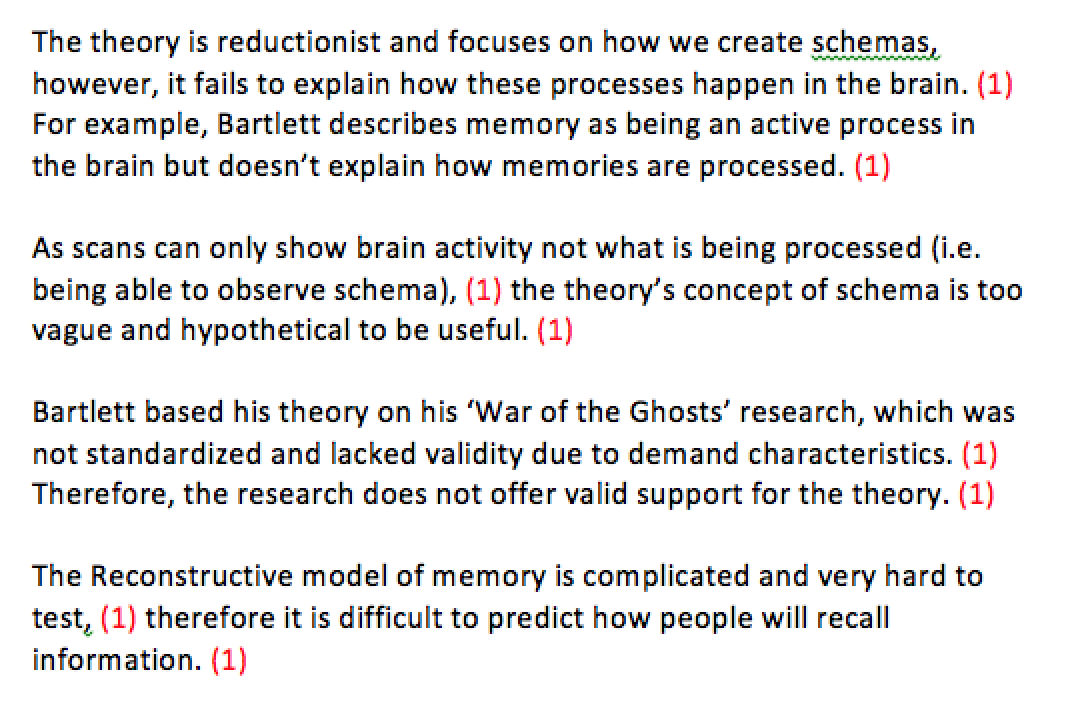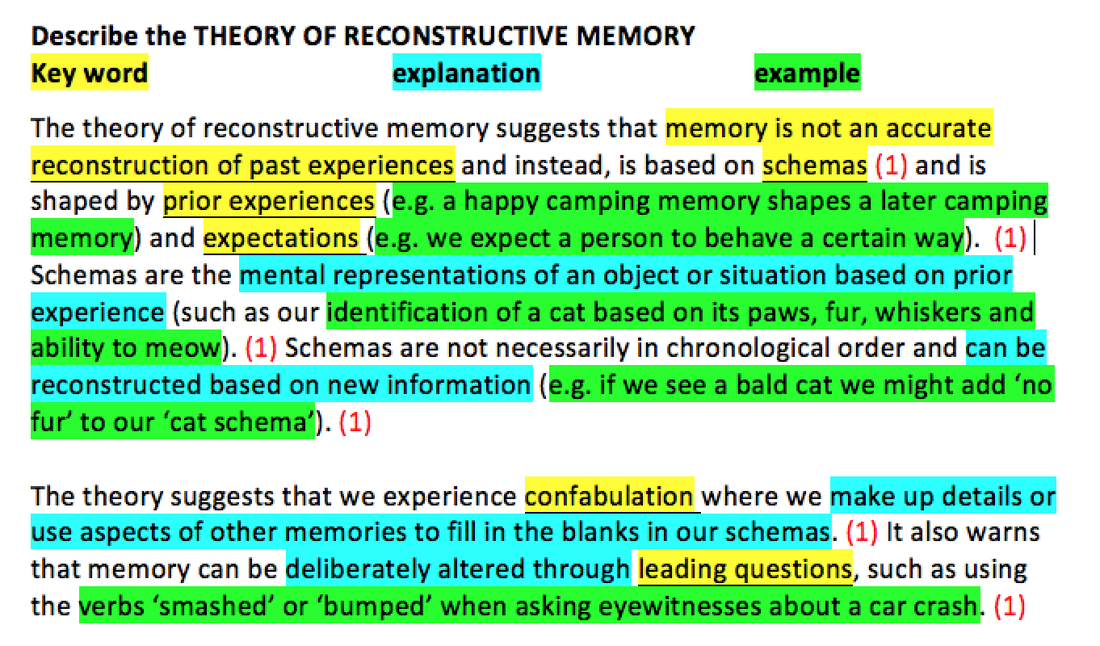What Is the Theory of Reconstructive Memory
The theory of reconstructive memory suggests that our memory is not necessarily an exact recall of an event. Bartletts study of reconstructive memory 1932 Aims.

Theory Of Reconstructive Memory Passmores Psychology Learning Hub
It doesnt faithfully play back our experiences.

. Psychologist Federic Bartlett discovered was that as an event happens we dont perceive as much as we think. BARTLETT 1932RECONSTRUCTIVE MEMORY SCHEMAS. Reconstructive memory is a theory of memory recall in which the act of remembering is influenced by various other cognitive processes including perception imagination semantic memory and beliefs amongst others.
Reconstructive memory refers to the process of assembling information from stored knowledge when a clear or coherent memory of specific events does not exist. The reconstructive memory model of episodic future thinking in anxiety Miloyan Pachana et al 2014 suggests that the biased retrieval of information from memory in the process of imagining future events therefore shapes the affective and phenomenological characteristics of those imagined events. Theory of reconstructive memory and eyewitness testimony Proposes that memory is an active process that involves the reconstruction of information rather.
A trusted reference in the field of psychology offering more than 25000 clear and authoritative entries. To investigate the effect of schema on participants recall of a story. Reconstructive memory suggests that in the absence of all information we fill in the gaps to make more sense of what happened.
Many people believe that memory works something like a videotape. Reconstructive memory is a theory of memory recall in which the act of remembering is influenced by various other cognitive processes including perception imagination semantic memory and beliefs amongst others. Derives from common knowledge and schemas as well as memory in order to rebuild events in.
Explore the definition example exercise and studies in reconstructive memory and discover how memories work and are. Not passive but constructive previous knowledge is used to interpret new information. Instead it changes or reconstructs them imaginatively.
Reconstructive memory Travis Dixon November 19 2018 Cognitive Psychology Criminology Studies and Theories 2 Comments The reconstructive nature of memory is a really interesting field of study and one that has numerous applications. Up to 24 cash back Reconstructive Memory Bartlett Memory does not work like a video recording meaning that our memories of an event are often incomplete as we only recall the important points. This experiment was based to test Bartlett schema theory which states that memory involves active reconstruction.
Achieving remembrance by analytically reconstructing past events which are incomplete within the subject s memory. Who said memory is a constructive process. Instead memory seems to be an active process meaning that we remember some details of a memory and from these smaller details we create a whole memory.
According to Bartlett we do this using. Reconstructive memory is the adding or deleting of details from memories. The idea that we alter information we have stored when we recall it based on prior expectations knowledge.
Views of memory which include varying degrees of constructive interpretive and reconstructive processes are considered as alternatives to the copy model. Reconstructive memory is the process in which we recall our memory of an event or a story. People view their memories as being a coherent and truthful account of episodic memory and believe that their perspective is free from an error.
This theory was proposed by Sir Frederick Bartlett one of the early figures in memory research. These alternatives include theories based on psycholinguistic constructs and visual imagery as well as positions involving the abstraction and reconstruction of information by means of more. Bartlett s theory of reconstructive memory is crucial to an understanding of the reliability of eyewitness testimony as he suggested that recall is subject to personal interpretation dependent on our learnt or cultural norms and values and the way we make sense of our world.
A schema includes expectations attitudes prejudices and stereotypes. Bartletts central insight was that memory is not like a tape recorder. Bartlett suggested that we remember the general meaning of events and that.
For example an interviewer may work with crime victim to assemble a memory of the traumatic events surrounding a crime.

Reconstructive Memory Ppt Download

Gcse Memory Reconstructive Memory Youtube

Theory Of Reconstructive Memory Passmores Psychology Learning Hub
No comments for "What Is the Theory of Reconstructive Memory"
Post a Comment